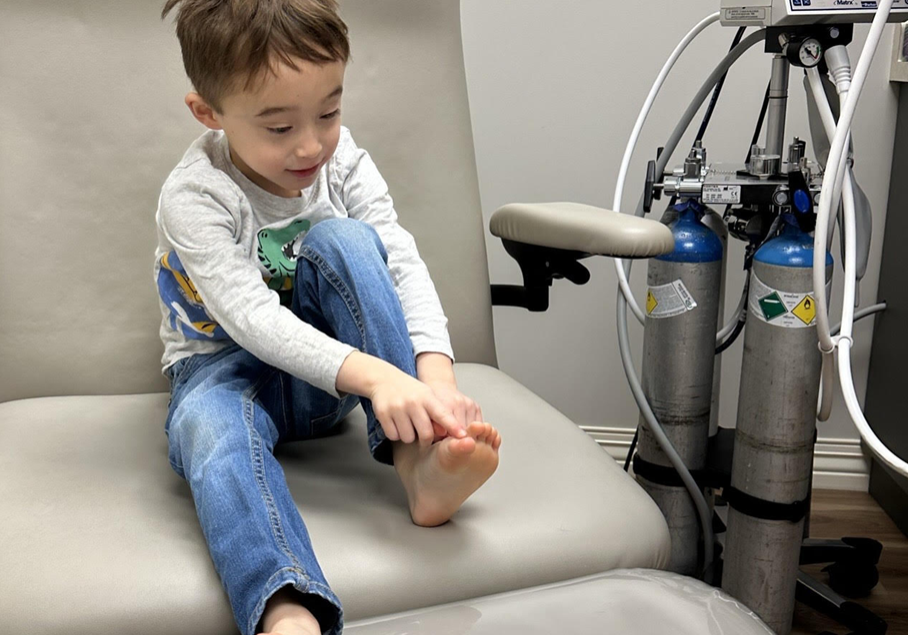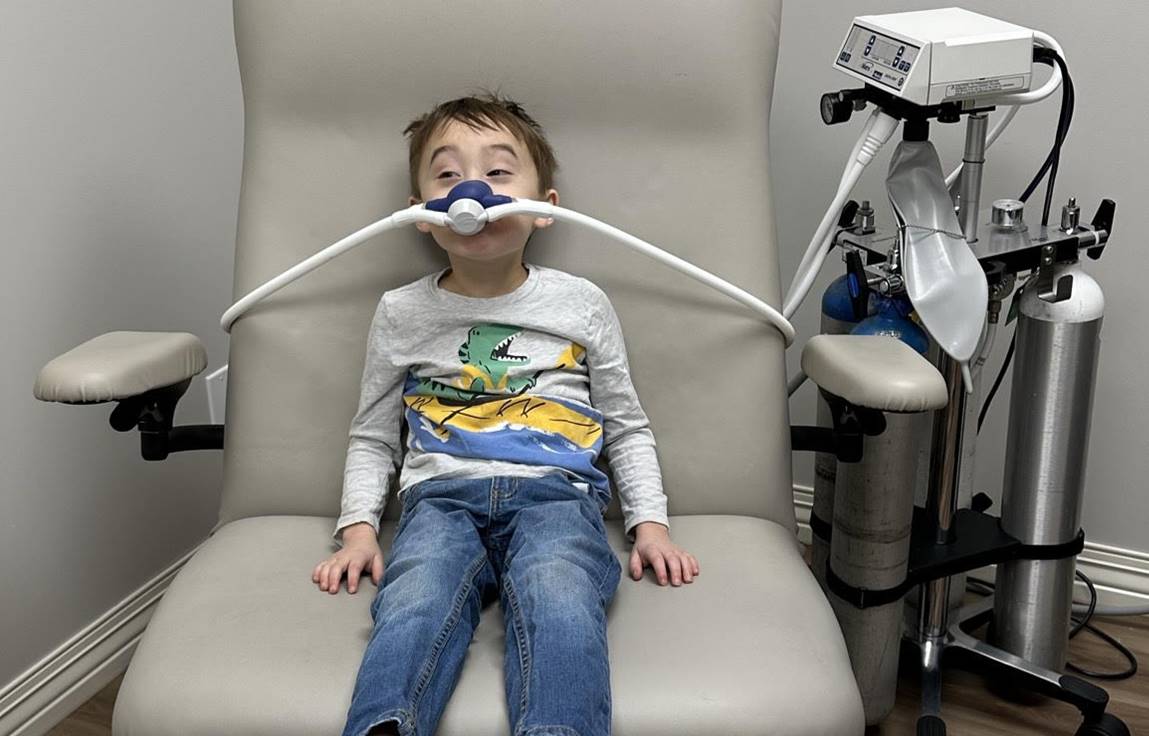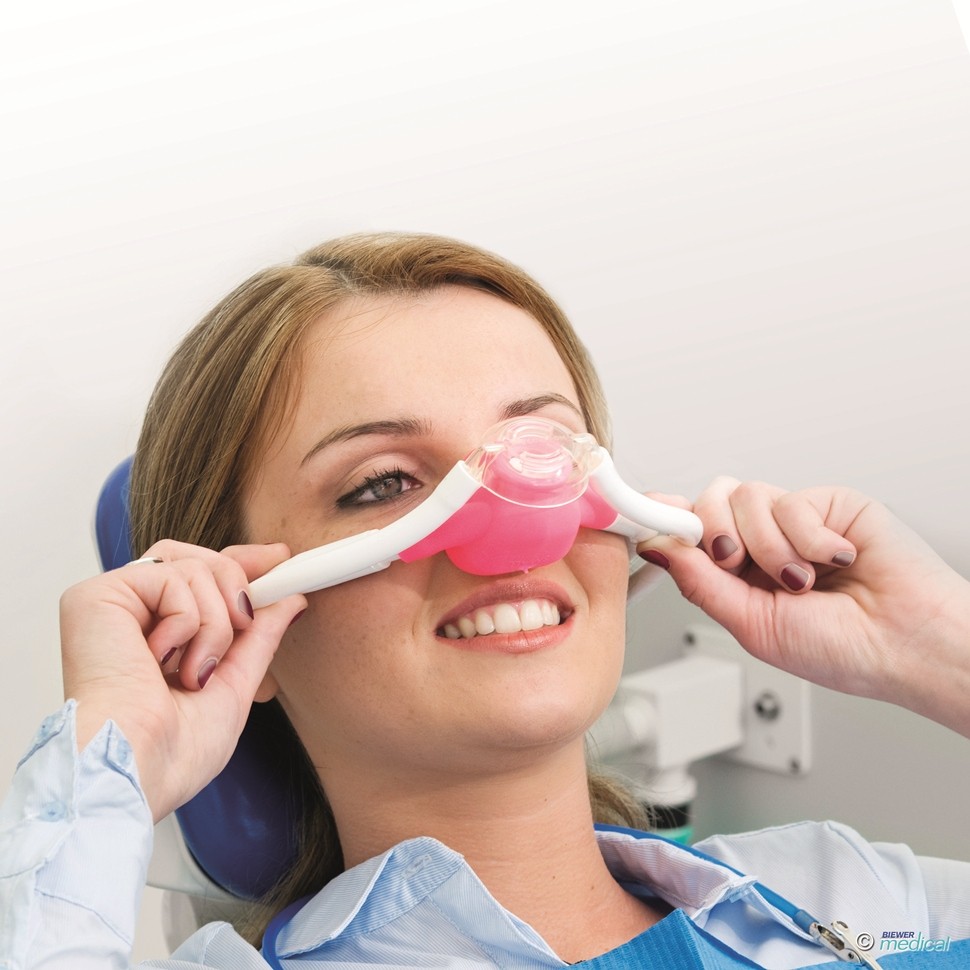
Which Type of Sedation Is Best for Me?
When it comes to foot/ankle procedures, patients can often take advantage of sedation to help them relax in the chair. Two common and very safe forms of sedation preferred by children and adult patients alike are oral sedation and nitrous oxide (otherwise known as “laughing gas”). Both of these sedation types offer a minimal level of sedation, helping the patient to experience a peaceful and relaxing visit.
It is rewarding to resolve your child's ingrown nail, we can help them tackle that fear of needles!


About Nitrous Oxide
- Unlike general or intravenous anesthesia, nitrous oxide is provided along with oxygen through a mask placed over the patient’s nose.
There are many advantages of using Nitrous Oxide in sedation Chiropody care such as:
• The sedation can be altered at any time, meaning the depth of sedation can be increased, or lowered
• There is no ill feelings afterwards, meaning there is no “hangover”
• Patients are normally able to drive home after their procedure
• It is completely safe and will cause no issues to your heart or lungs
• It starts to kick in almost immediately as within 20 seconds, the nitrous oxide will reach the brain and shortly after that, a feeling of relaxation and loss of pain will endure
However, there are some instances where Nitrous Oxide should not be used as a form of sedation. If you have been diagnosed with chronic obstructive pulmonary disease (COPD) and certain mental health conditions, you should not use Nitrous Oxide as a sedation technique. Although there are no other major contraindications to using Nitrous Oxide, a patient may not want to use it if you are suffering from chest pains, M.S., emphysema, a cold or flu, or if you have difficulties breathing in general.
About Oral Sedation
Minimal oral sedation is typically taken in the form of a pill, allowing the patient to feel deeply relaxed and to ease their anxiety. The patient will often feel drowsy as well, and may even fall asleep. Usually, the pill should be taken roughly an hour before the patient’s treatment. Contrary to general sedation, patients receiving oral sedation will still be conscious during their visit.
How Should I be sedated?
Most patients in good health are candidates for sedation care. Talking to your Chiropodist about your medical history, level of anxiety or anything else you think he or she should know will help you to determine the most suitable form of sedation for your treatment.
Talk to a Team Member Today!
